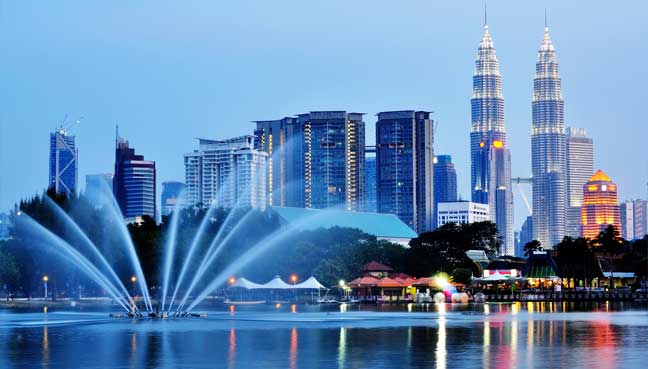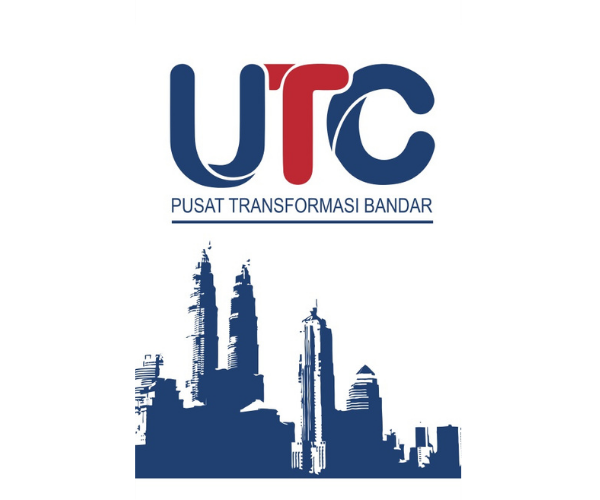By Wong Jae Senn
Last year, when our country was still in the midst of one of its most tumultuous and uncertain transition periods ever, I wrote some of my thoughts on how Malaysians take this country for granted and do not know how fortunate we are while focusing on the negatives, and that shared prosperity could be a unifying factor to bring us together again and reduce disenchantment between all races.
This year, we ended up with a different coalition running the government, with a different prime minister and a different ministerial cabinet. What has changed this Malaysia Day compared to last year?
Well, for one, the ongoing global pandemic seems to have slowed down the rate of political maneuvering somewhat, which is good for us because it has brought some measure of stability and certainty to our nation. Nonetheless, we still have the usual suspects trying to overthrow the current government despite knowing that it will only sabotage our pandemic-era economic and recovery measures. Just recently I had the chance to meet with a group that represented the Swedish government’s social responsibility initiatives and the key person told me that Malaysia is still an attractive country for the Swedish government to assist and invest in, but due to the political climate, they’ve ended up ranking Malaysia to be more politically unstable compared to Indonesia. Needless to say, it wasn’t something that was nice to hear though I’m not surprised at this sentiment.

There will always be those that will sow hatred among us, and propagate disunity and instability in our society, to weaken our country from within and to diminish our own feelings and perception of our beloved country. A prominent regional human rights group, as if intentionally-timed to coincide with this significant day for our country, has just released a report citing that the current administration is practising political persecution and the silencing of Opposition figures.
These foreign groups, as always, are a part of the left-wing globalist movements that support neoliberal and socialist political factions in developing countries and they are far from being neutral political analysts and observers. Whatever they say and write have an implicit agenda. You will never hear them voice out against the previous government despite them slandering, mocking and persecuting members of their preceding administration daily but here they are, these supposed defenders of human rights, jumping in to criticise the current government for taking action against members of the previous administration for their wrongdoings.
Narrative Of Hate And Toxic Politics
Without missing a beat, the statement from this human rights group has been easily latched upon by those who dislike our country to continue their narrative of hate and toxic politics. These people, for political mileage, are always at ease fermenting hatred against Malaysia itself and not merely against any particular politician or leader.
We’ve seen this divisive rhetoric during any of the recent East Malaysian by-elections and the run-up to the Sabah state elections. Social media was aflood with highly derogatory statements that denigrate the East Malaysians just because they did not vote for a certain faction, saying that “they deserve to remain poor”, or that “they should stay in the jungle forever” and don’t come over to the Peninsula, or that they’re a burden to all Malaysians. No prizes for guessing which political party’s supporters uttered such statements, or which is the primary ethnicity saying these words.
It would appear that as of Malaysia Day 2020, Malaysia remains more divided than ever, despite the improved economic stability, the better performance of our current Finance Minister, and the more cohesive and coherent policies that have been put in motion for over half a year.
Different Story On The Ground
However, when we step outside of this “negative news cycle” bubble that is put out constantly by certain well-known online news outlets, we hear a different story on the ground.
Many of those in the Chinese business community are saying that our economy seems to be moving again and they’re looking forward to the revived public infrastructure projects stimulating our local economy. Many non-Malays who were fence-sitters, protest-voters and swing-voters in the last General Elections have said that they will not bother voting in the next General Elections as Pakatan and DAP do not bring any meaningful change and improvement anyway.
Increasingly, more people of all races are viewing the corruption charges against a key Opposition figure to be something that is grounded in facts and not merely a political ploy, and they’re not buying the story that there’s not a single shred of evidence or that these charges are baseless. More and more people are saying, “Enough with the drama, just let the courts decide.” When it comes to a veteran politician’s new political party, I’m pretty sure no comments are necessary. Their results speak for themselves, as is the volume of derision directed at them and their supporters.
There are still many kinks that the current Perikatan Nasional government will need to work out to ensure that they can win the people’s trust. Internal power struggles and in-fighting, for one. They can stop pretending that we don’t notice it. We do, and it’s at risk at being just as bad as Pakatan Harapan’s in-fighting eventually. Muhyiddin and his cabinet still have a long way to go towards re-creating a sense of unity and belonging to this country among all Malaysians. Too bad, he can’t re-use the “1Malaysia” tagline, but neither have they come up with something equally effective, or publicly announced a comprehensive rural-urban gap-reducing economic development blueprint like TN50.
It is unfortunate that most overseas Malaysians will always spin a negative tale about Malaysia which in turn influences our locals to think badly about Malaysia. Often-times, the locals who say that Malaysia is a failed state or that we’re one of the worst countries in the world are the figurative “frogs under coconut shells” who have never ventured outside the country or have never had the chance to properly compare our strengths and faults with other parts of the world. At the same time, positive words about Malaysia always get drowned out by all the negativity due to our human nature of focusing more on what’s wrong than what’s right.
For example, when we e-mail a government department in Malaysia, almost all the time we will get back a reply by the next working day. At most, we’ll get a reply in 48 hours. We take this for granted. In a place like Australia, for example, which is so highly-vaunted by Malaysians, your e-mail to a government department might even go unanswered for over a week!
In Malaysia, we can renew our road tax online and have the road tax sticker delivered to us by post. Tell that to an American and he’d be stunned. I’ve had Canadian colleagues being highly impressed with the fact that I can renew my passport within a matter of hours by walking into any one of the UTC centers. I’ve had foreign colleagues surprised at seeing our smartchip-equipped passports and identity cards. They were impressed at how many things that Malaysians can do online, such as filing our taxes, paying our assessment fees and all our bills, and even filing small-claims against errant traders with the relevant ministry. These were all improvements from the past decade that we’ve ended up being so accustomed to that we just take for granted.

Apart from that, even our KL International Airport and PLUS Highway make many of the airports and interstate highways in the United States and Canada look like third-world country infrastructures in comparison. Almost all Malaysians are bi-lingual at least, with a large segment of tri-lingual population, something that also amazes many foreigners. We do, nonetheless, have race chauvinists that want to be monolingual (and even monolingual in something other than our national language) but fortunately most Malaysians do not think along the same lines. We have many good things going for us and for the areas that we fall behind, we should give it a shot to fix them together.
Education is one area in which we are sorely in need of improvements. Our national school system is no longer the first choice for most urban households. Why is this so? The mediocrity of our national school system and its syllabus has resulted in our tertiary education institutions sliding in world rankings year after year while our nearest neighbor constantly goes from strength to strength. We should take a long hard look at our education system and disregard political correctness when asking honest questions about where we went wrong, and continue to go wrong. Enough with pandering and appeasing certain groups when it comes to education. The end goal of educational excellence should be the primary objective that takes precedence over everything else.
Unbalanced Focus On SMEs
The small and medium enterprise (SME) sector is one which all past and present administrations have paid attention to as it contributes to two-thirds of job opportunities in the country, and accounts for over 40% of our GDP output. However, our focus on SMEs have been rather unbalanced and skewed more towards technical sectors or the highly-saturate food and beverage sector. This hasn’t helped the urban-rural income gap and economic output gap. We should seriously consider agrotech and modernized agriculture as rural-focused SME sectors as these require the skillsets that the rural folks are most adept at and we are essentially using the right tools for the right jobs, producing the right products. The increased economic output of the rural population, together with more direct private participation in rural SMEs (instead of the rural population being tied to behemoths like Felda and other plantation giants), would be the key to empowering the rural economy and narrowing the urban-rural gap, which will also directly increase the size of our local economic pie, leaving more to go around for everyone.
A well-educated populace with fairly-distributed earning and purchasing power will be an important first step towards transforming Malaysia within the course of a generation. When we have a well-rounded population that has good general knowledge, a global worldview and good capacity for critical thought mingling with one another, the intangible boundaries between races and religions dissipate by themselves. When everyone have their own shot at prosperity by leveraging on their strengths and despite the constraints of their surroundings, all of us will be busy being productive and enterprising and will automatically gravitate towards a collaborative existence instead of a competitive one (which, at present, have resulted in pockets of hyper-competition and hegemonic monopolies).
Perhaps, by then, all of us will be able to say that we’re Malaysians without hypocrisy, and be truly inclusive and colour-blind. To get there, it doesn’t depend on our vote. It doesn’t depend on our preferred political logo. It starts with us. It starts with what we do at home, how we raise our kids, the friends and accomplices that we mix with, the small parts we play and things we do to improve unity and prosperity among the small number of lives that we regularly touch.
I have already started my journey long ago but I see that there’s still a long journey ahead, and I hope more of us will be on a similar journey as well.
Happy Malaysia Day, everyone.
New Malaysia Herald publishes articles, comments and posts from various contributors. We always welcome new content and write up. If you would like to contribute please contact us at : editor@newmalaysiaherald.com
Facebook Comments